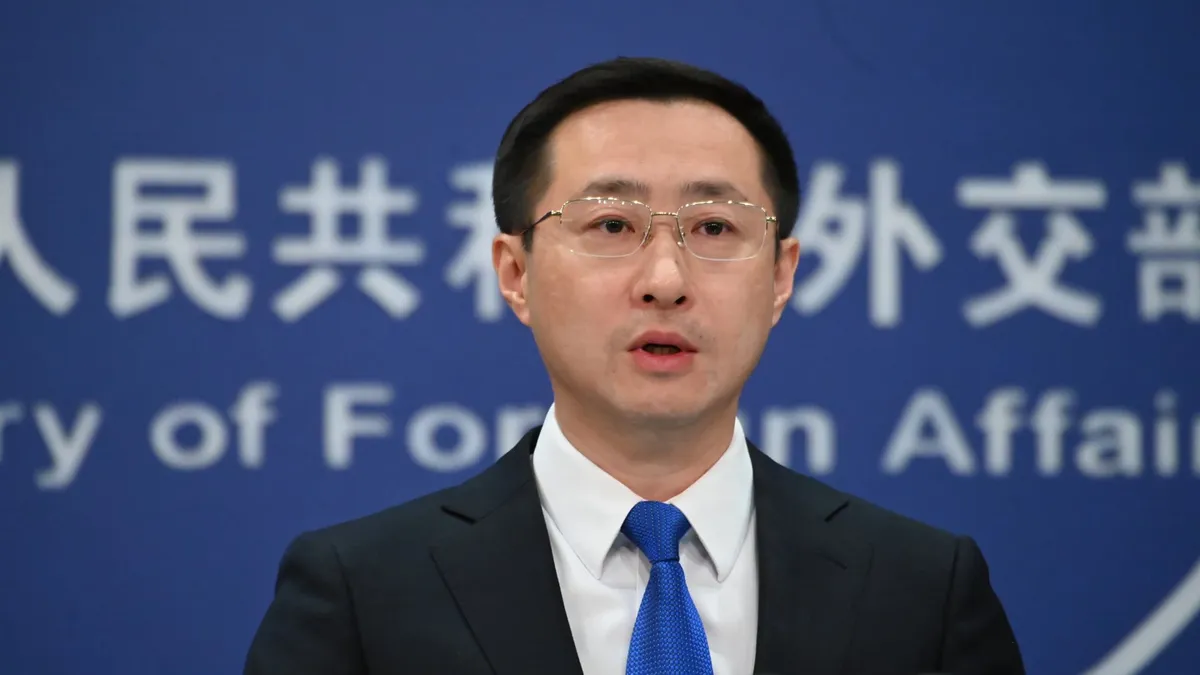
On Wednesday, China's foreign ministry made a strong statement reaffirming that Beijing will implement resolute and forceful measures to protect its national interests. This announcement comes on the heels of the recent implementation of a staggering 104% net total tariffs on Chinese imports into the United States. During a regular press briefing, Foreign Ministry Spokesperson Lin Jian articulated that if the U.S. genuinely seeks to resolve the ongoing trade conflict, it must approach negotiations with a spirit of equality, respect, and mutual benefit.
Lin Jian echoed sentiments expressed by the commerce ministry earlier in the week, declaring that if the U.S. continues to pursue a tariff war and a broader trade war, China is committed to fighting back with unwavering determination. This declaration aligns with the recent announcement from China's Finance Ministry, which detailed a new set of 34% additional tariffs on all U.S. goods effective April 10. This retaliatory measure follows President Trump's imposition of similar levies, aimed at Chinese imports.
According to Dan Wang, the China director at the Eurasia Group, the implications of Trump's tariffs are severe. She noted that such tariffs would likely eliminate profits for Chinese exporters once U.S. import duties exceeded the 35% mark. Wang suggested that once this threshold is crossed, Chinese exporters may cease selling to the U.S. market altogether, signaling a potential escalation in the ongoing trade tensions.
In a separate official white paper released by the State Council Information Office, Chinese authorities reiterated their stance against the U.S.'s economic strategies. The document characterized the U.S. use of tariffs as a weapon to exert pressure and pursue self-serving interests, labeling it as a clear instance of unilateralism, protectionism, and economic bullying. The Chinese government contended that raising tariffs would not resolve U.S. trade surplus issues; instead, it would lead to heightened volatility in financial markets, increased inflation, and detrimental effects on American industries.
Despite the ongoing tensions, Beijing expressed a desire for the U.S. to engage in constructive dialogue. The Chinese authorities urged the U.S. to meet them halfway by cancelling unilateral trade barriers. They reiterated their openness to enhancing dialogue, managing differences, and fostering collaboration between the two nations. Furthermore, China claimed it had adhered to the terms of the Phase 1 trade deal negotiated during President Trump's administration, while asserting that the U.S. had violated certain provisions of the agreement.
As this situation continues to evolve, CNBC has reached out to the White House for comments regarding China's claims, highlighting the complexities and intricacies of international trade relations.